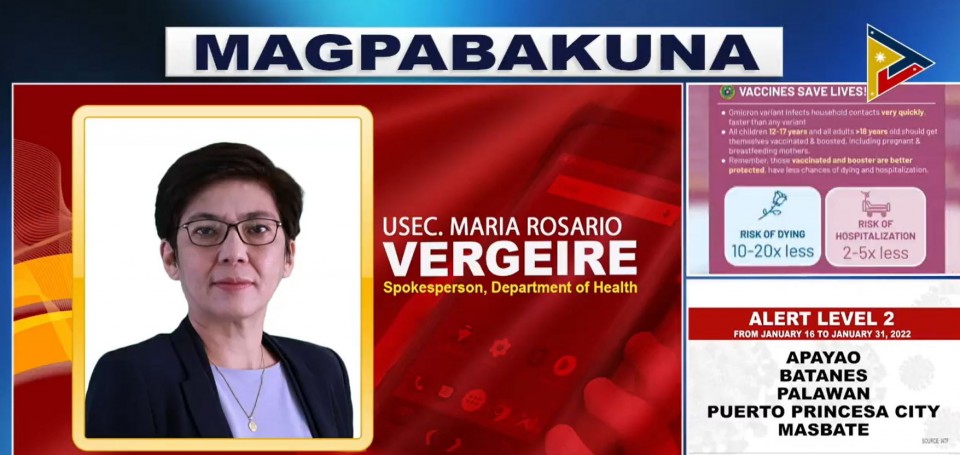(Eagle News) – Because of “very high transmission rate and high infection rate” of COVID-19 in the National Capital Region, the Department of Health said that contact tracing is a challenge and is not prioritized anymore.
Health Undersecretary and Spokesperson Maria Rosario Vergeire said that “contact tracing is not a priority intervention anymore” because of rising infection rates in Metro Manila.
The DOH official said that the shift in strategy from less tracing to more targeted testing is a strategy that could be more efficient in the use of limited resources, including health facilities and available health care workers.
“This strategy ngayon ay para tayo po ay mas maging efficient sa ating resources. Unang-una, ang atin pong very high transmission rate and high infection rate here in the National Capital Region warrants na hindi na po masyadong kailangan ng contact tracing dahil mas nauuna pa po ang impeksyon kaysa ma-trace po natin lahat ng contacts,” Vergeire said in a recent Laging Handa press briefing.

She said that in areas where there is a high infection rate such as in Metro Manila, contact tracing is not a priority intervention, but that contract tracing is still a must in areas where the rise in COVID-19 cases is not that high.
“So, ang sinabi ho natin sa mga areas na mayroon ho tayong matataas na infection rate na at transmission rate, contact tracing po ay hindi na priority intervention; pero hindi ho natin sinasabi na hindi na siya importante especially doon sa mga areas natin sa ating bansa na hindi naman ho mataas pa ang infection rate at talagang kailangan pa hong mag-contact trace para malaman natin kung sino ang may sakit at kung sino ang wala,” Vergeire said.
The DOH spokesperson said that that they would now “expand the roles of our contact tracers to help in other community interventions.” These interventions are vaccination, monitoring of other illnesses in the communities, and other non-COVID-related works.
Based on DOH data, Metro Manila reported almost 16,000 new COVID-19 cases (15,959 cases) on Sunday, January 16, 2022. This is almost half of the 37,154 new COVID-19 cases in the country that day. So far, total active cases in the country have reached 287,156.
Vergeire said that there is active community transmission of the Omicron variant in Metro Manila and possibly in other regions in the country experiencing a spike in COVID-19 cases.
(Eagle News Service)








